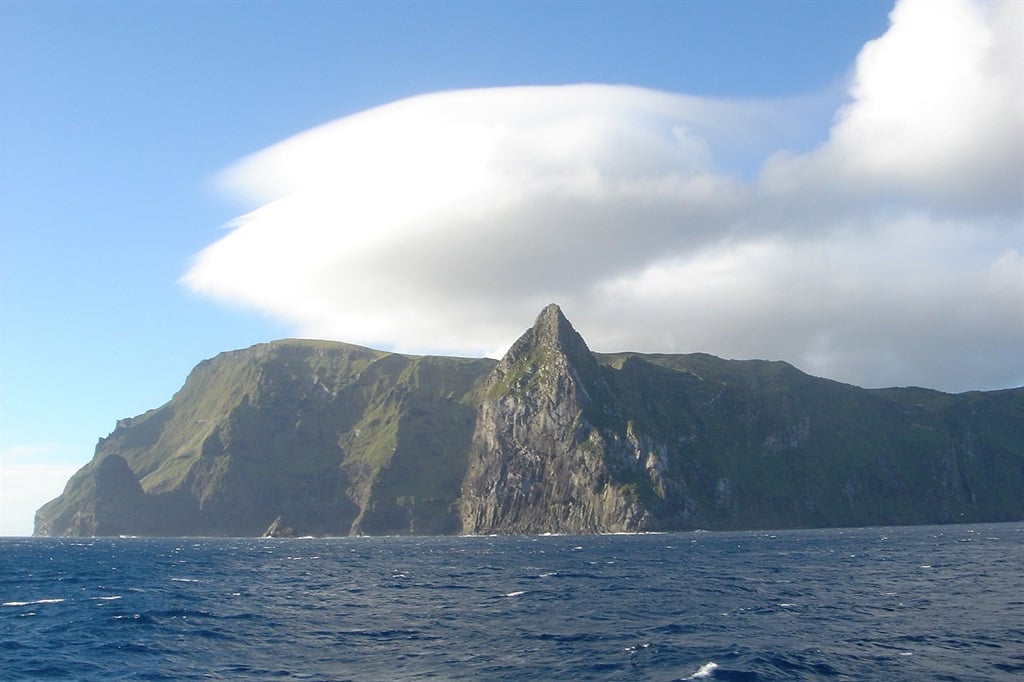
- Gough Island, which is surrounded by thousands of kilometres of ocean, is home to a South African weather station.
- Each year, a new expedition team is sent to the island to man the station and conduct research.
- A South African research team is being sent to the island for the first time in a number of years.
- For more stories, visit the Tech and Trends homepage.
A change of guard is under way on an island surrounded by thousands of kilometres of ocean in all directions, where South Africa has a weather base.
The country has been operating the weather station on Gough Island in the South Atlantic since 1956, according to Peter Mbelengwa, the acting chief director of communication and advocacy at the Department of Forestry, Fisheries, and the Environment (DFFE).
The island is one of the most remote places on Earth, more than 2 000 kilometres away from the African continent. Tristan da Cunha island is around 400 kilometres away from Gough Island.
Each year, the SA Agulhas takes an expeditionary team to the island to man the weather station and conduct research there for a full year.
This year's team left for a week-long voyage to the island on 16 September.
Nine people headed out to the site, and the team will be returning on 17 October after a handover period.
The team members form part of the South African National Antarctic Programme (Sanap), an offshoot of the DFFE, which manages and administers the station.
There are two more stations that form part of Sanap - one in Antarctica and one on Marion Island, which is far south and slightly west of South Africa.
Gough Island was leased from the British government, which owns it, to the then South African Weather Bureau (now the South African Weather Service) in 1955, according to a blog post on the Antarctic Legacy of South Africa (ALSA) website.
The island's positioning meant it was viewed as strategically important for the collection of weather data that is used for South African forecasting, according to Professor Peter Ryan, who first traveled to the island in 1984.
Ryan was the head of the Fitzpatrick Institute of African Ornithology, a bird research institute within the University of Cape Town.
"Gough was seen as a very important site for forecasting what the weather was going to be across the Atlantic to South Africa," Ryan said.
A research site
He added that the island was interesting from a biodiversity perspective because the bulk of the population of a variety of birds are found on the island. "It's a visually spectacular and beautiful island, and very important from a biodiversity perspective."
In addition, it's the only place in the world where Gough moorhen and Gough bunting birds are found, as well as a variety of invertebrates.
The bulk of the research conducted on the island is funded by the United Kingdom, Ryan said.
This year, though, a South African research team is being sent to the island for the first time in several years, Mbelengwa said.
"After an absence of many years, the voyage includes a chemistry research group from the DFFE in collaboration with the Council for Scientific and Industrial Research (CSIR), working on carbon ocean research."
Inhospitable
The terrain on the island is difficult to navigate which is a challenge for researchers.
According to Ryan, four people have died on the island since expeditions began - three from exposure and one who was swept out to see while trying to fish.
Other than the main base, there are no huts around the island like there are on other islands, such as Marion Island. This means the team members spend all their time together at the main base.
He said:
The main base has become better over the years, however. It now has basic internet connection and everyone is able to stay in separate rooms.
No fresh food is allowed on the island because it is a bio-hazard.
In recent years, a mouse infestation plagued the island. An attempt to eradicate the mice in 2021, which cost in the order of £15 million (R350 million), was unsuccessful.
While there is a nearby shipping channel and fishing vessel that visits the island to catch rock lobster for a few months each year, there are very few visits from the outside world, Ryan said.




 Publications
Publications
 Partners
Partners
























